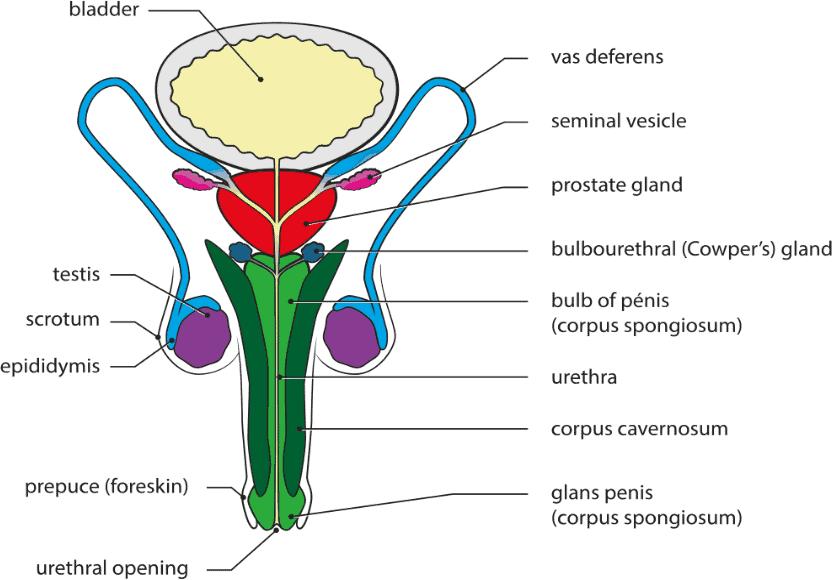
All men have the potential to be affected by prostate cancer. About 1 in 9 men will be diagnosed with prostate cancer in their lifetimes. While the treatments for prostate cancer are different depending on each specific case- chemo, radiation, or even a prostatectomy (or removal of the prostate entirely) are common treatments for the disease. With the current treatments up to 87% of men can experience urinary incontinence after prostatectomy.

While you do not need the prostate to survive, it is a KEY part of urinary continence for most men. As the Urethra passes through a healthy prostate it will help to hold it closed, to prevent urinary leakage. The urethra travels past the prostate and through the pelvic floor muscles which together hold in urine until you can make it to the toilet.
Unfortunately, whichever treatment is selected to eliminate the cancer, this can also weaken the tissues and muscles around it.
SIGNS AND SYMPTOMS OF PROSTATE CANCER
Changes to urination can be some of the first symptoms. Talk with your doctor if you begin to have difficulty with urination including:
In the U.S. it is common practice to have a blood test to screen for PSA (prostate specific antigen) as well as a physical evaluation by your doctor to diagnose prostate cancer.
YOU CAN REDUCE OR ELIMINATE URINARY LEAKAGE
Up to 87% of men have urinary leakage after prostatectomy and as many as 72% of men continue to be incontinent 6 months later.
The good news is that you DO NOT have to live with urinary incontinence.
Men have 2 “stoppers” of urine: the prostate and the pelvic floor muscles. When the prostate is removed the pelvic floor muscles can be strengthened to help stop the flow of urine.
Yes, both men and women have a pelvic floor!
With the help of a pelvic floor physical therapist, men can target and strengthen their pelvic floor muscles to reduce or totally eliminate urinary leakage.
WHEN TO BEGIN PELVIC FLOOR PHYSICAL THERAPY
Men, with or without prostate cancer, can begin pelvic floor PT as soon as they have any changes to their bowel or bladder habits.
Men who have been diagnosed with prostate cancer should begin pelvic floor physical therapy a few weeks before your cancer treatment.
A skilled pelvic floor therapist will complete a comprehensive evaluation of your symptoms and pelvic floor muscles. They will teach you about the muscles, how to find the muscles, how to use the muscle, and begin working on your ability to control them prior to the surgery or other treatment options recommended by your doctor.
Building strength, endurance, and nerve connections with these muscles before the operation can reduce pain, improve bladder control, and make recovery time quicker after the procedure.
Your PT will provide an exercise plan to follow after the surgery to ensure a speedy recovery of the pelvic floor muscles and return of your bladder control.
After your surgeon clears you to return to physical therapy you will again work on the strength and endurance of your pelvic floor muscles to get you back to doing all the things you love without leaking and without pain.
IT IS NEVER TOO LATE FOR HELP
If you or someone you know has had a prostatectomy, it is not too late to seek help for urinary incontinence or pain. It is never too late to get back to doing everything you love without worrying about pads and leaks. Call us today at 410-721-6333 to talk with one of our pelvic floor physical therapy specialists and schedule a free Breakthrough visit to get help now!



